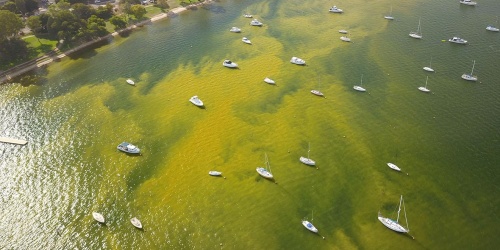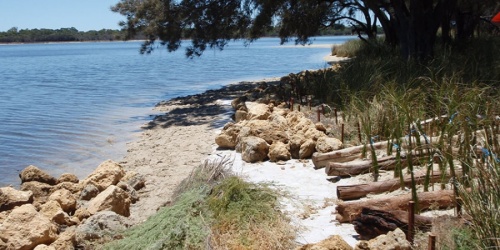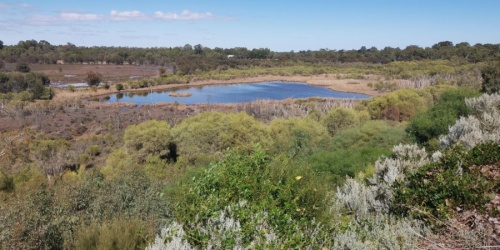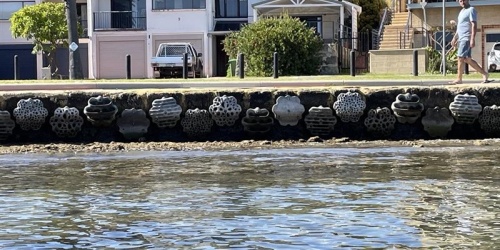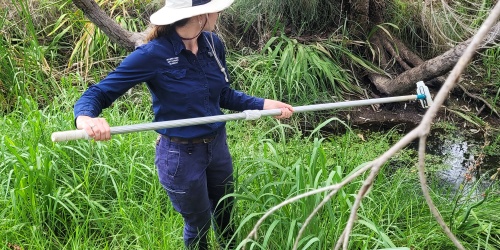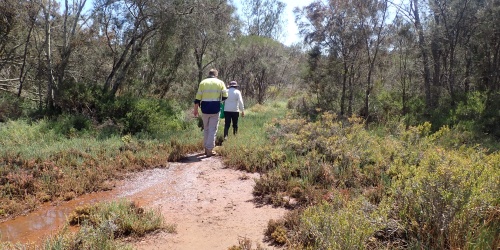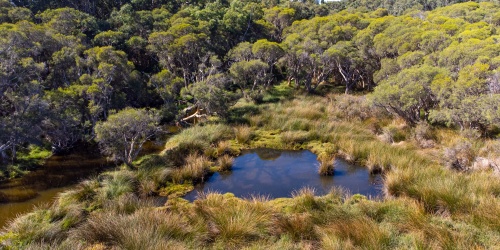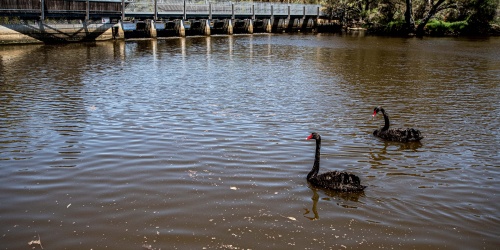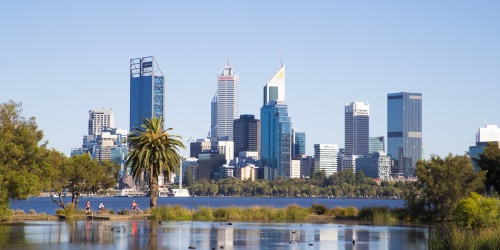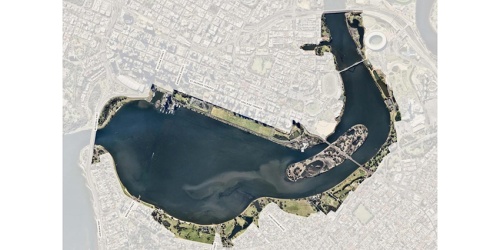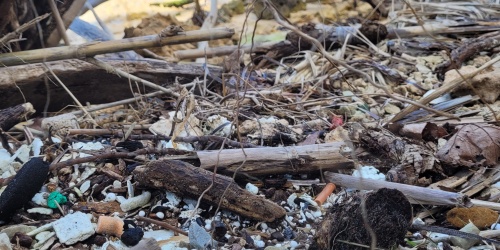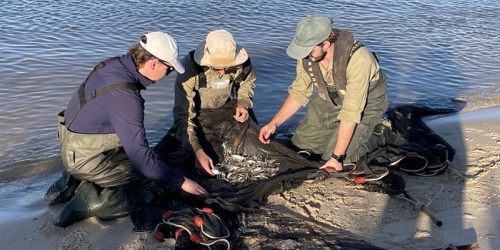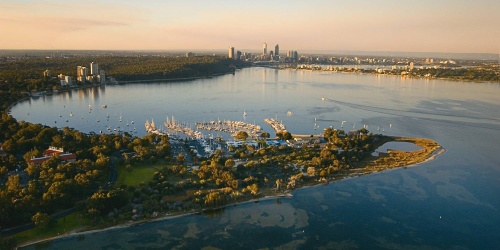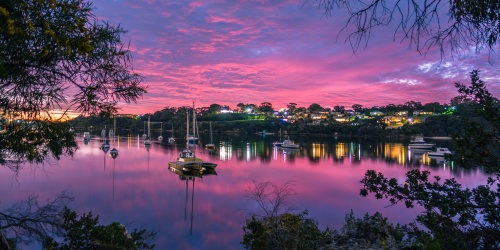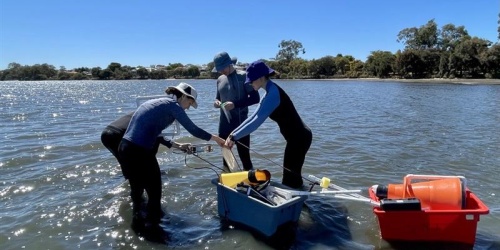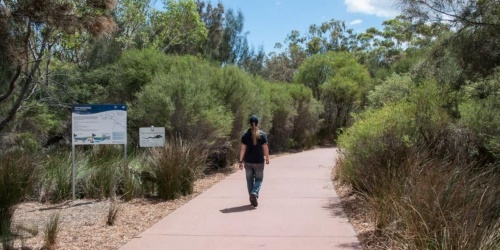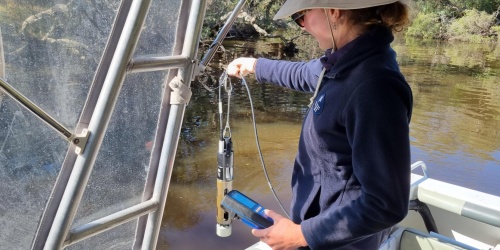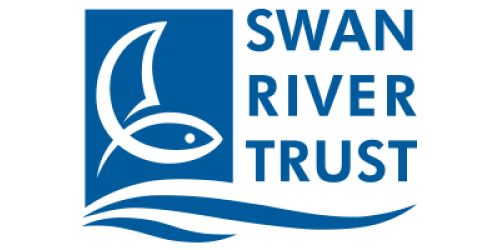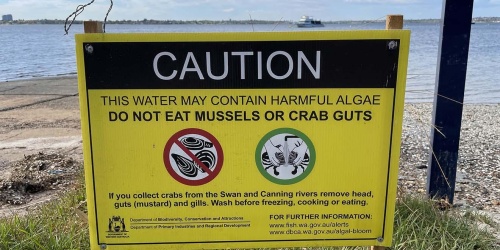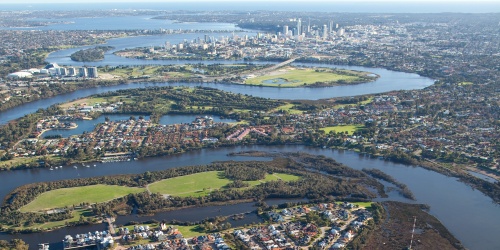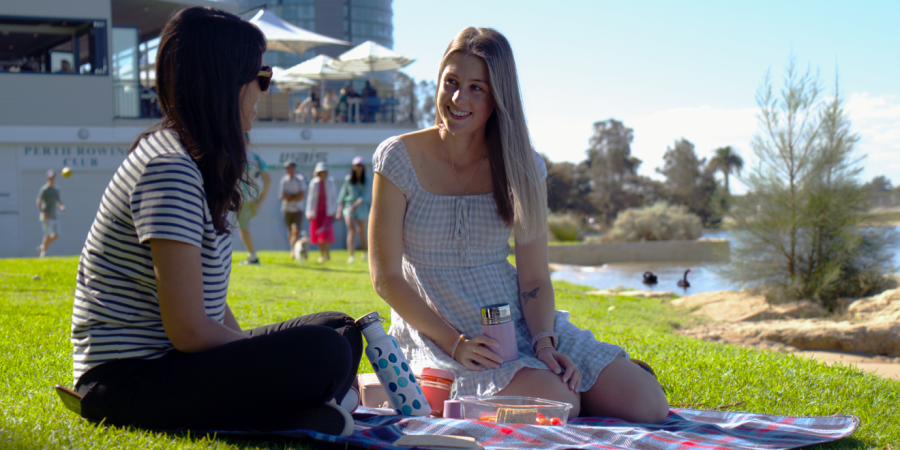
Enjoying a picnic at the Riverpark. Photo – Zoe Beeson/DBCA
The Plastic Free Riverpark Program is currently open for grant applications. See below for information about business and event applications.
The Plastic Free Riverpark Program works with riverfront events, food and beverage businesses, sporting groups and local governments to reduce single-use packaging, particularly single-use plastic packaging, in the Swan Canning Riverpark.
In its first four years, the program supported more than 62 venues and 27 events to reduce 3.2 million single-use food and beverage packaging items from their organisations and supply chains with more than $180 000 in grant funding.
The Swan Canning Riverpark is socially, culturally and economically significant to the people of Perth. It is also home to a diverse range of flora and fauna, including more than 80 bird species, 200 recorded species of fish, and 20–25 Indo-Pacific bottlenose dolphins.
Packaging is often littered and has the potential to pose a major risk to the Swan Canning Riverpark. Wildlife can ingest or become entangled in plastic debris. Packaging washing up on foreshores can affect root growth of flora and visitor amenity. Remaining debris can impact tourism, block drainage infrastructure, and break up into harmful microplastics.
The Plastic Free Riverpark Program supports Western Australia’s Plan for Plastics legislation, which has regulations to ban selected single-use plastic items. To find out what single-use items are still allowed in Western Australia, check out the Ban Solution Finder | Alternatives to Single-Use Plastics in Australia
Change takes time, but small actions from Perth’s businesses, local governments, residents, and recreational user groups can make big inroads towards a healthier Riverpark for all.
This initiative is part of the WA Government's Kep Katitjin-Gabi Kaadadjan (Waterwise action plan 3) to establish leading waterwise communities for Boorloo (Perth) and Bindjareb (Peel) by 2030.
Supporting reuse at businesses and venues
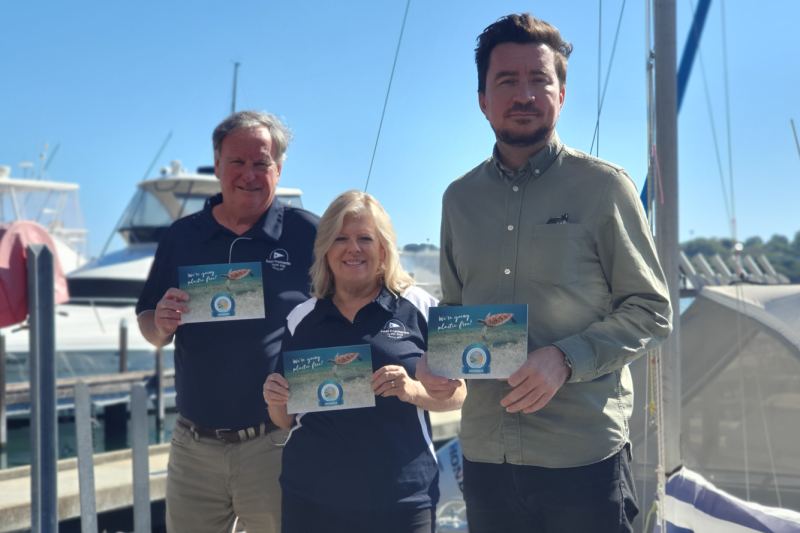
Riverfront food or beverage businesses, commercial operator or sporting organisations operating within 2km of the Swan Canning Riverpark may apply for a grant ranging from $1,000 to $10,000 (plus GST) for a project that meets the eligibility criteria.
Grant applications are encouraged before the closing date of Thursday 30 April 2026. Please read the grant guidelines before applying for a grant.
The Plastic Free Riverpark Program has already assisted over 62 venues and businesses to remove more than 2.5 million single-use packaging items.
Businesses and venues - grant application guideline
Supporting reuse at community events
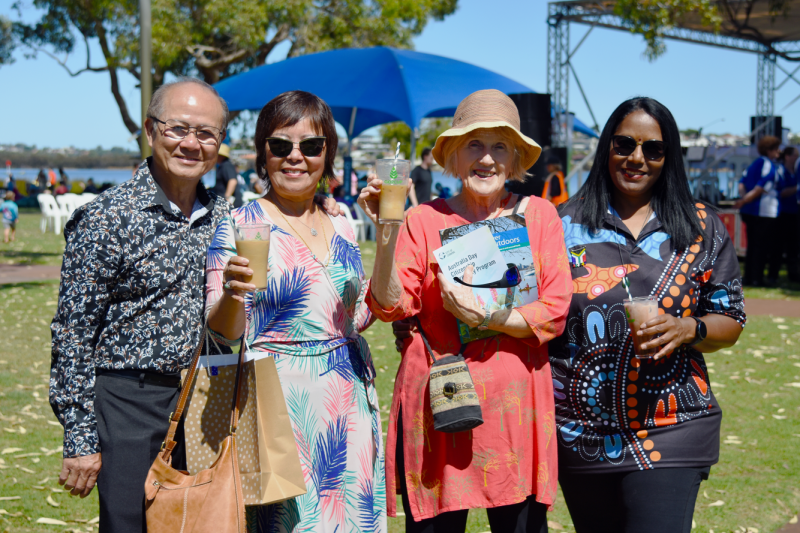
The Plastic Free Riverpark Program supports riverfront local governments and event organisers to eliminate single-use products at community events located within 1km of the Swan Canning Riverpark. Working with vendors to source reusable alternatives to packaging, implementing free water refill stations and clearly marking waste stations can help to significantly reduce litter from these important cultural and sporting gatherings ending up in our waterways.
Grant applications are encouraged before the closing date of Thursday 30 April 2026. Please read the grant guidelines before applying for a grant.
The Plastic Free Riverpark Program has already assisted over 27 events to provide remove approximately 600,000 single-use packaging items as part of their event programs.
Community events - grant application guideline
Measuring plastics in the Riverpark
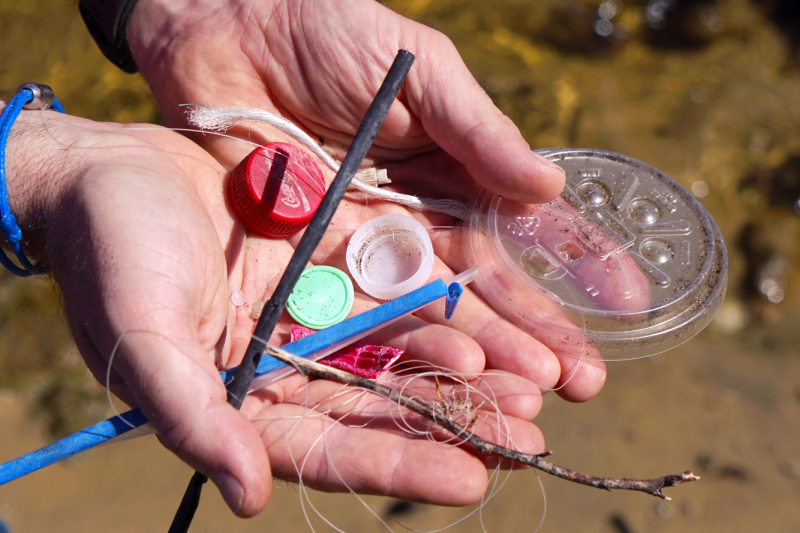
In 2021, an assessment of 38 shoreline sites across the Swan Canning Riverpark revealed plastic pollution is prevalent in the system. This work was led by DBCA’s Rivers and Estuaries Science Program (RES), in partnership with the Department of Water and Environmental Regulation (DWER).
The Plastic Free Riverpark program has worked with Curtin University and RES to measure plastic debris entering the Riverpark via priority drain locations.
Monitoring is being conducted to fill gaps in knowledge and identify priority locations where plastic intervention technologies can be installed in partnership with relevant land managers, including local governments.
These technologies could include rubbish sorting racks, gross pollutant traps and customised bins which assist local riverfront governments to collect, measure and remove plastic debris.
Get involved
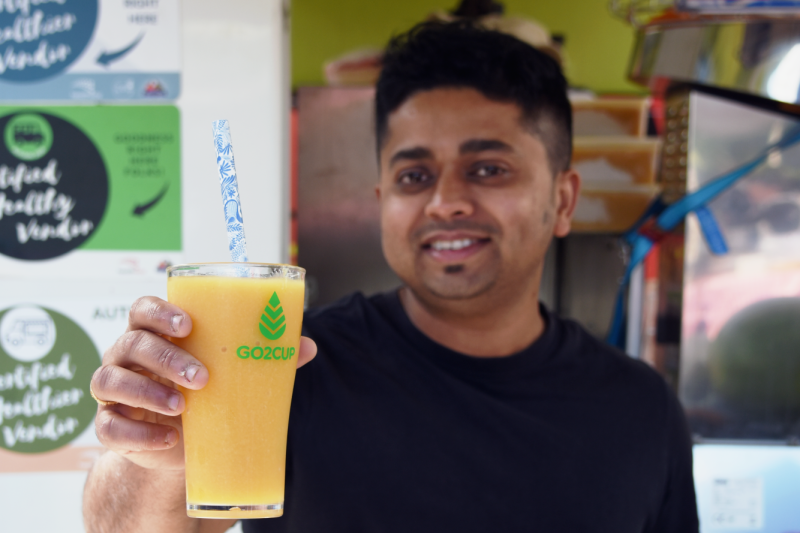
Choose to reuse for the Riverpark. If you’re planning a trip down to the foreshore, pack a reusable coffee cup, refillable water bottle, bag and container, or take some time to dine in at a venue rather than takeaway. Choosing reusable alternatives helps to reduce waste as well as encourage others to follow your lead. Avoid disposable options to help reduce single-use packaging entering the Swan Canning Riverpark.
If you do see litter and it’s safe to pick it up, dispose of it in a bin with a lid or take it home to your household bin.
Are you a food and beverage business or event organiser wanting to make a difference? Contact plasticfreeriverpark@dbca.wa.gov.au for more information.
Contact us
Bree Jennings
Project Officer – Plastic Free Riverpark program
Email: plasticfreeriverpark@dbca.wa.gov.au
Phone: 9278 0985
Mobile: 0467 538 518
